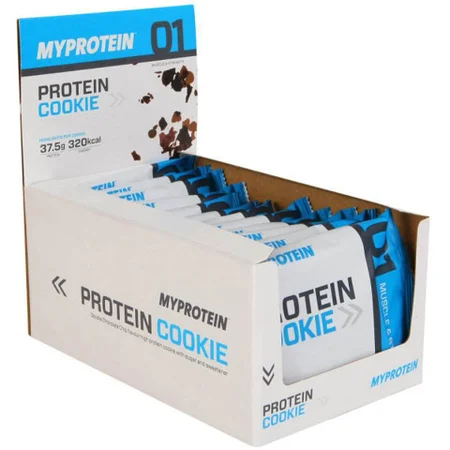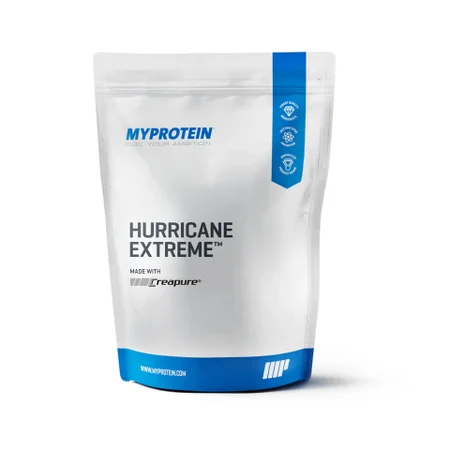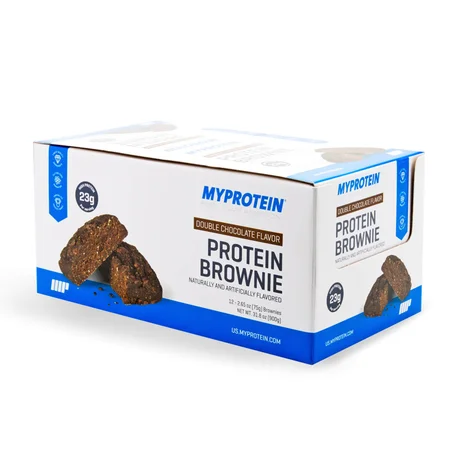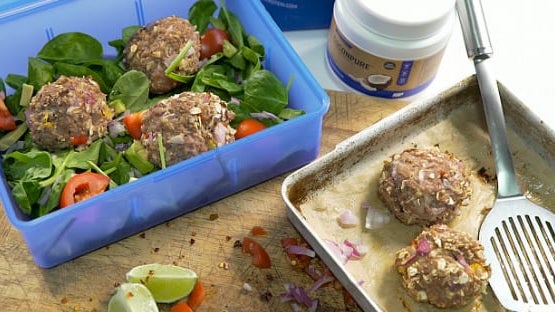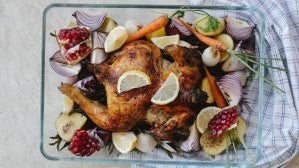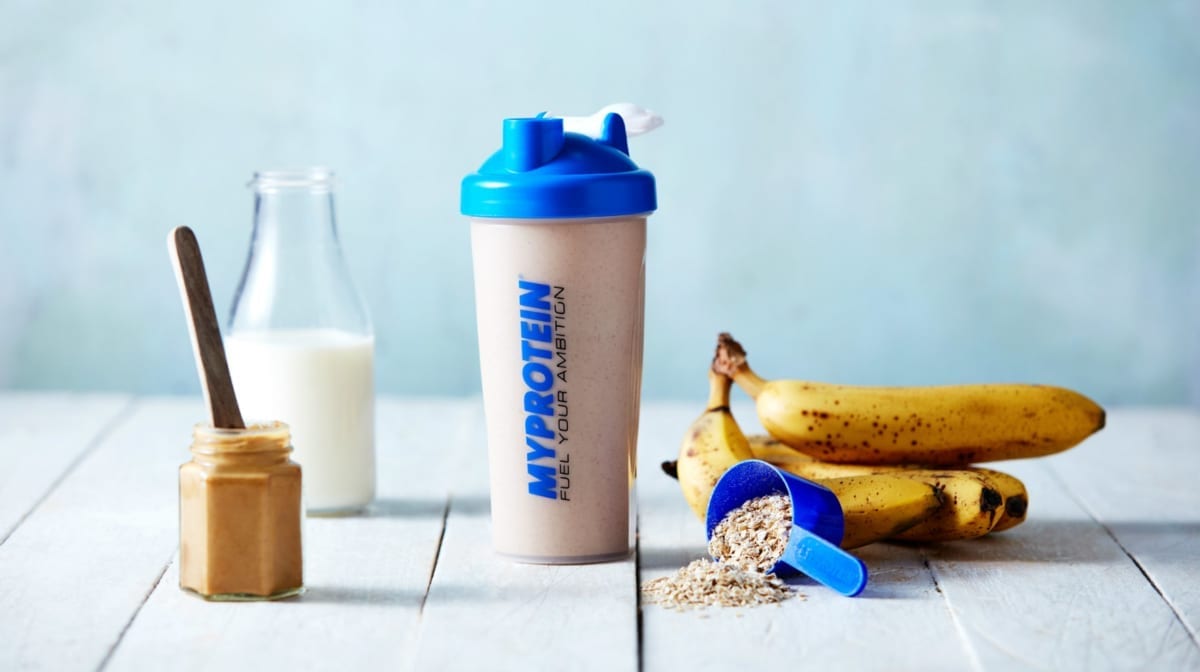
MANY of us will turn to a meal replacement shake when we're trying to lose weight, but are they actually good for you?
Whether you are big into the fitness and healthy living game or not you have more than likely seen ads for these products or on the shelves in stores. Usually coming in the form of bars, pre-made shakes, or powder, these supplements are meant to do exactly as they say. Their main purpose is to replace breakfast, lunch, or dinner without sacrificing any calories or nutrients.
Sometimes they come with the promise of being able to keep you healthy on the go while others claim to be able to help you lose weight faster than a regular calorie restricted diet. Are these supplements able to do all they claim or are they just another overrated product that won't help your goals? In this article, we will discuss who should be using meal replacements as well as what to look for in a quality product.

When Should You Use Meal Replacements?
To put it simply, whole foods will always be the best way get all your nutrients and calories but meal replacements can be used semi-often to replace certain meals at certain times. Depending on what your goals are and your current physique you can fall anywhere between using a meal replacement daily to not needing one at all.
For those who are overweight and are looking to lose a good amount of mass then it is possible to easily lose weight without using meal replacements at all. More than likely making small changes to your diet such as drinking diet soda instead of regular and eating a salad instead of a burger, for example, will lead to weight loss over time. For these individuals losing weight isn't very difficult and it is possible to simply increase activity (such as walking more and taking up a fitness routine) and well as substituting unhealthy foods for healthy foods in an increasing amount.
It is when we get to men who are below 20% body fat (and women below 30%) when a meal replacement can be effective for weight loss and fueling the body. Since these individuals are at a lower body fat they will have a harder time losing the fat and will need to occasionally restrict calories further and further. At a certain point, things like fruit and veggies are substituted for more protein or complex carbs like rice.
This can be problematic as these very restrictive diets lack certain vital nutrients such as vitamins A, D, E, K as well as various minerals. In this situation it would be smart to replace no more than one meal a day with a complete meal replacement shake/bar with a wide spectrum of vitamins and minerals as well as healthy fats, complex carbs and high quality protein (we will get into what makes a good meal replacement supplement in the next section). It is important to note that whole foods should still make up the majority of your diet as they will always be more satiating and diverse in terms of nutrients.
Another situation where meal replacements can be effective for even those who aren't specifically trying to lose weight are individuals that have a very hectic lifestyle and don't have the time to prepare all their meals. Those who are maintaining or even trying to gain weight can use meal replacements whether they are travelling or too busy to take a lunch break at work. While they can be used temporarily, it is alway recommended to find a way to eat some real food the majority of the time (I know I've stated this fact many times and this is on purpose to show how important it is).

What Makes A Good Meal Replacement?
With so many options out there it is hard to know what to look for when it comes to meal replacement shakes. When choosing right you could have a very viable nutrient dense and protein-rich supplement, but when choosing wrong you could have nothing more than a sugary drink with low-quality protein and no micronutrients. While there are no exact guidelines for finding the right meal replacement product, there are a few tips that should be followed before buying anything.
The first thing would be price, as these supplements should not be much more expensive than regular protein powder/drinks or bars. This means for a solid kilo or 2.2 pounds (the size of a regular tub) should be around 20-25$. Premade drinks can be anywhere from 2-4$ depending on their size and bars will be close to the same.
Once you find a well-priced product turn it over and look long and well at the nutritional facts. Per serving (for all three types) there should be around 200-500 calories depending on the serving size. 5-10 grams of fat from both saturated fats and unsaturated fats which is even better if it contains Omega-3 fatty acids. Carbs are the most controversial part of meal replacements as there are very healthy and unhealthy forms of carbs that are hard to differentiate to the normal consumer. A good meal replacement should have the majority of its carbohydrates in the form of complex carbs, usually sourced from oats.
A low-quality product will have most of its carbs from simple carbs, either from maltodextrin or even pure sugar. A good meal replacement will also contain a decent amount of dietary fiber from soluble and insoluble sources (5-15 grams per serving would be ideal). Protein should be from either whey or milk protein, but plant forms such as soy, pea or hemp are acceptable as well. A good rule of thumb is the amount of protein should equal or outway the number of carbs (or sugar) in the shake or bar.
Where meal replacements really can shine and set themselves apart from regular protein bars and drinks infused with carbs are their micronutrient profile. Usually in one serving there will be a third the DRI (daily recommended intake) for all vital nutrients for excellent health in a good product. These vitamins and minerals include:
? The vitamins A, B1-12, C, D, E, and K ? The minerals calcium, potassium, iron, magnesium, zinc, chloride, manganese, selenium, iodine, and sometimes copper.
While some might contain more, these are the minimum micros that should be included to properly replace what a full meal of whole foods would have contained. Anything with less should not be considered a meal replacement and would fall under the category of protein bar/shakes with added nutrients but should not be used to replace a meal.

Take Home Message
While meal replacements are effective for those who need to be in a large calorie restrictive diet to lose weight or are too busy to cook for themselves and still want to eat healthily, they will never replace a diet of meats, fruits, veggies and complex carbs from various sources. For a few reasons including protein from plants and meats as well as veggies need to be broken down in the stomach which will fill you up for longer and has the satisfaction of actually eating the food. The issue with shakes and bars are that they are usually not very filling and can cause cravings for actual food quickly after eating/drinking it.
Another big reason would be most of the micronutrients in meal replacements are usually synthetic (made in a factory) and are not varied in the way that natural forms of these vitamins, minerals and antioxidants are to provide a wide spectrum of health benefits. Meal replacements can be a quick fix when there is no time to make a full meal or to save calories by replacing one meal a day but finding out how to minimize their usage in place of a complete diet even when trying to lose weight is recommended by this writer. And that's it, all you need to know about meal replacements and what to look for as well as when to use them.

Alice Pearson is a UKVRN Registered Associate Nutritionist and UK Anti‐Doping accredited advisor, having obtained a Bachelor’s of Science in Nutrition and a Master’s of Science in Sport Nutrition. She has a specialist interest in the use of sports supplements for improving health, fitness, and sport performance. Alice has experience working with both amateur and elite athletes, including providing nutritional support to Tranmere Rovers FC and Newcastle Falcons Rugby Club. Her nutritional guidance is always supported by evidence‐based research, which she keeps up to date through continuing professional development and independent learning. In her spare time, Alice loves travelling, hitting the gym, and getting stuck into a good book. Find out more about Alice's story here.
